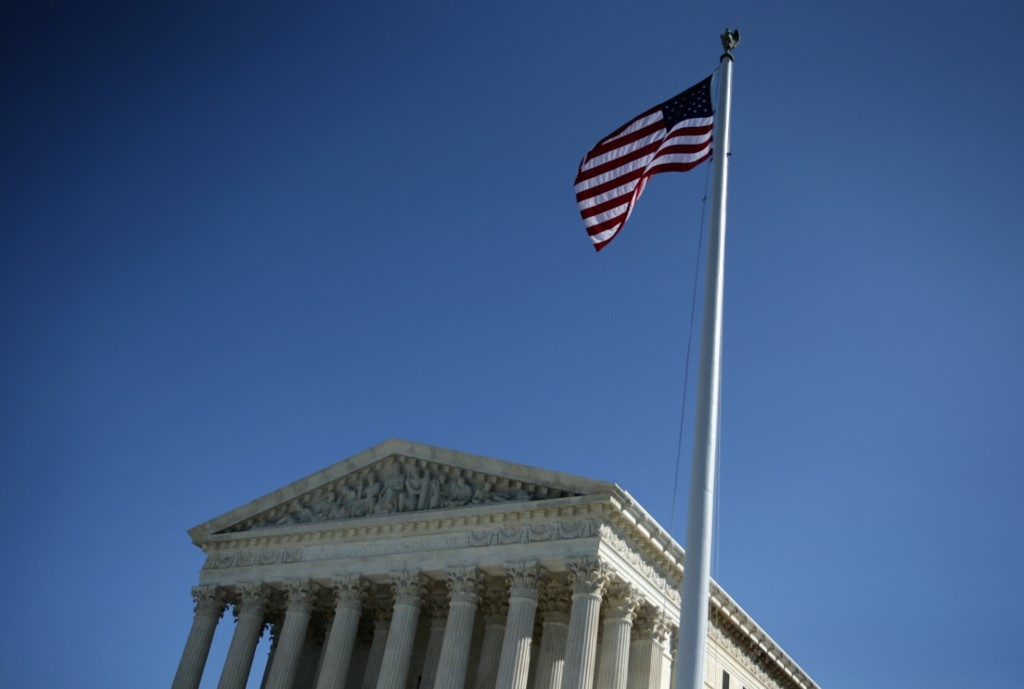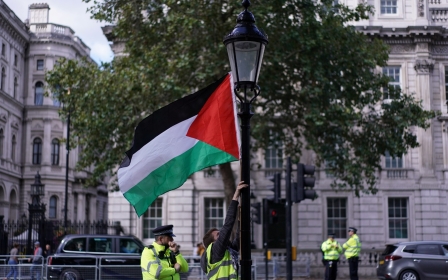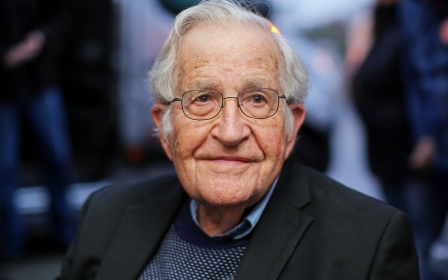US court dismisses $900m lawsuit against Palestinian Authority and PLO

The US Court of Appeals has dismissed a 2004 lawsuit against the Palestinian Authority (PA) and the Palestine Liberation Organisation (PLO) over their alleged involvement in a 2002 suicide bombing.
Filed under the US Anti-Terrorism Act, the lawsuit sought $900m in damages for the families of American victims of a suicide bombing in the Israeli settlement of Karnei Shomron in the occupied West Bank.
New MEE newsletter: Jerusalem Dispatch
Sign up to get the latest insights and analysis on Israel-Palestine, alongside Turkey Unpacked and other MEE newsletters
The 16 February 2002 attack killed two US nationals, Keren Shatsky and Rachel Thaler, and injured 30 others, including four US nationals.
The victims' families and their representatives based their lawsuit on the claim that the bombing was enabled by the PA and the PLO.
After more than 15 years of legal back and forth, the US Court of Appeals of the District of Columbia found on Sunday that "the district court lacked personal jurisdiction over the defendants".
The Palestinian Ministry of Finance "expressed its satisfaction with the ruling", according to the official Palestinian news agency Wafa.
The case, Shabtai Scott Shatsky vs the PLO, et al, has been one of several unsuccessful lawsuits brought forth in US courts against Palestinian-aligned groups under the US Anti-Terrorism Act, a law allowing American victims of "international terrorism" to seek damages in US courts.
The 'Anti-Terrorism Act'
Critics of the act say it has been used to target pro-Palestinian groups. The law has also been criticised for turning international conflicts into domestic US legal issues.
In 2015, after a six-week trial in a similar case, a federal jury in Manhattan awarded American families $218.5m, which was tripled automatically to $655.5m under the Anti-Terrorism Act.
The case continued to move through US courts. Eventually, an appeals court said the attacks occurred "entirely outside" US territory, and found no evidence that Americans were targeted.
As a result, American courts do not have jurisdiction to hear the claims, it said.
Following appeals to that decision, in 2018 the case made it to the US Supreme Court, which finally rejected the lawsuit, refusing to award damages.
At the time, lawyers for the plaintiffs said the courts' decisions "eviscerate(d) the Anti-Terrorism Act" by severely limiting what cases can be heard in US courts.
They argued that Congress wrote the law specifically to apply to attacks that took place outside of the United States in which US citizens were injured or killed, whether or not Americans were specifically targeted.
Several months later, Congress passed the Anti-Terrorism Clarification Act, which sought to clarify the legal issues surrounding US jurisdiction in such cases.
While US President Donald Trump signed the act into law, experts say the legislation continues to raise constitutional questions that will ultimately be decided within the judicial system.
Middle East Eye delivers independent and unrivalled coverage and analysis of the Middle East, North Africa and beyond. To learn more about republishing this content and the associated fees, please fill out this form. More about MEE can be found here.





